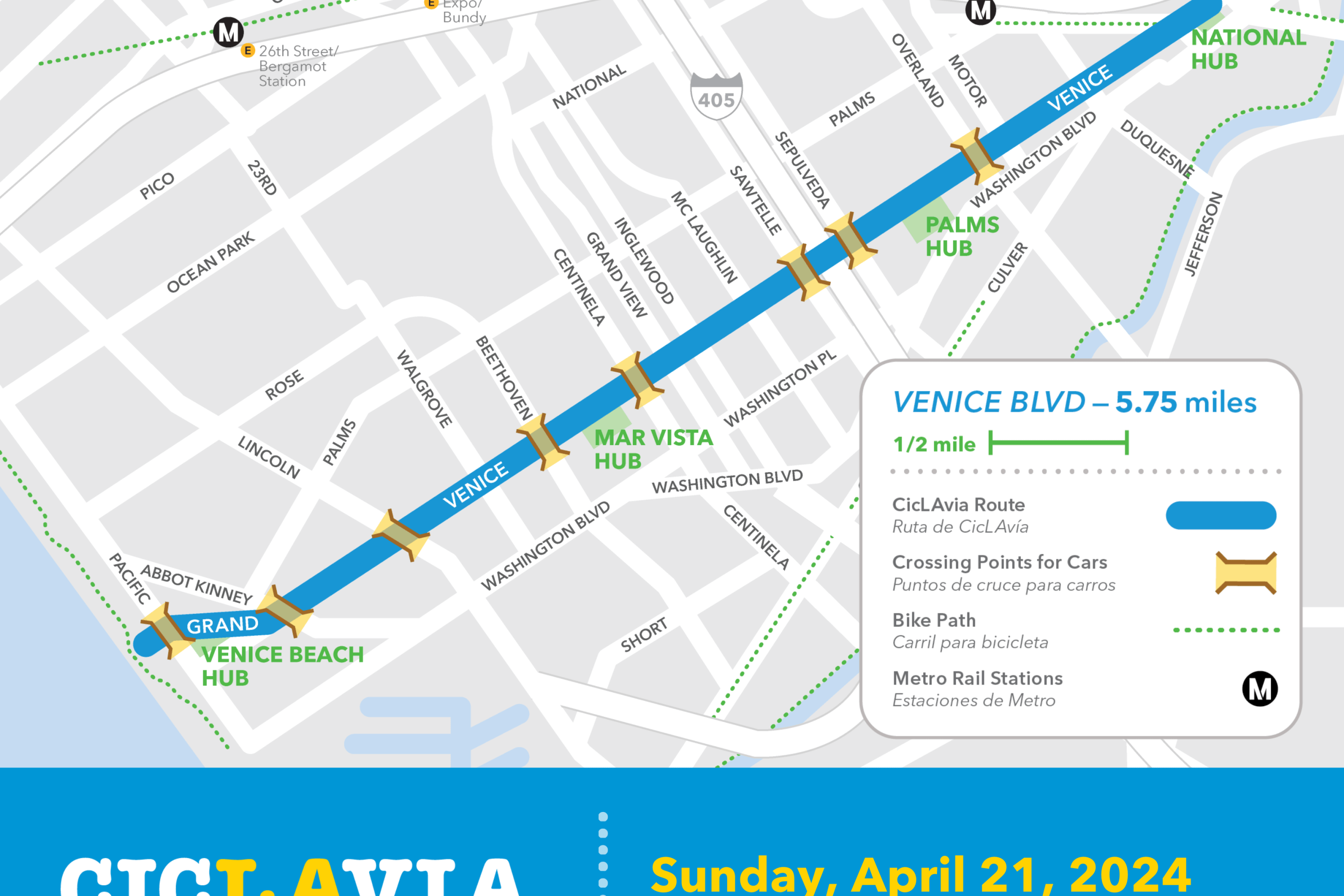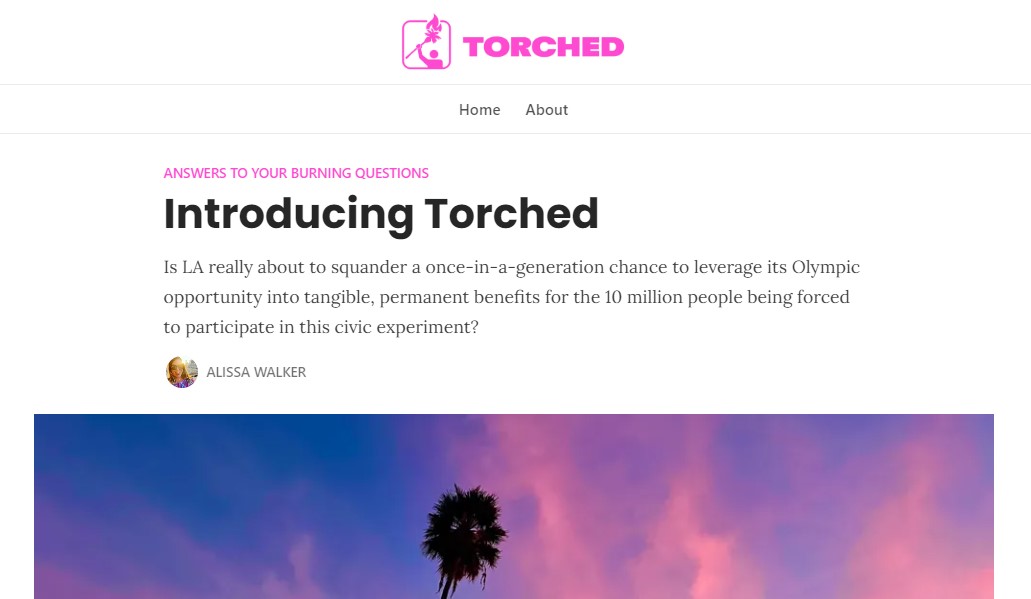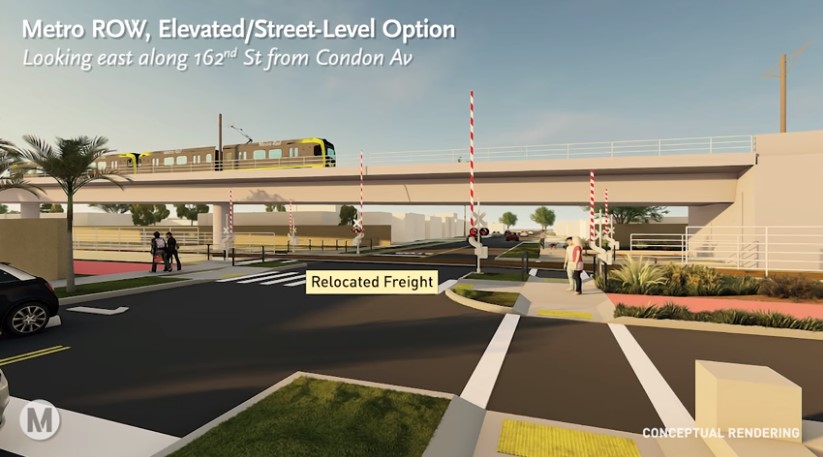A Weekend at Transportation Camp
7:44 AM PDT on March 21, 2011
Above is a reaction to the Un-Conference from a UCLA "Bruin for Transit." See Jeff Wood, from Reconnecting America and the amazing email update "Other Side of the Tracks" react to the conference at a StreetVid on YouTube.
I was lucky enough to spend my weekend in San Francisco at OpenPlans Un-Conference, Transportation Camp West. I should note that OpenPlans remains a strong partner in the daily production of Los Angeles Streetsblog.
At the un-conference, there was a split in the types of discussions presented in the open sessions. Some were on open data and some high tech issues that were a little over my head. The others were on some form of transportation wonkery. You can guess where I spent my time.
For those of you that have never been to an Un-Conference, and I'm already lobbying OpenPlans to bring the conference to the other city with a Streetsblog after programming two in New York and San Francisco, the format is designed to maximize conversation. For example, instead of a program built around power point presentations and experts talking on their favorite topic, the un-conference doesn't have a break-out session schedule. Conference attendees propose session ideas and then they're assigned a room and time slot based on the quality of their proposal and what else is being proposed. Often times when I present at a conference, I roll in late, make my presentation, and leave early. You can't really do that at an un-conference. It's the participants that make the program and the schedule isn't created until the day begins.
On Sunday morning, I proposed my own topic and was given a chance to lead a group discussion. No power point. No panel of experts. Me and the dozen people that were most interested in "Language Matters: How to Gain Mainstream Usage of Livable Streets Terms and Ideas" sat down and talked.
After about ten minutes, it became apparent that my discussion team didn't agree with my idea that we have to change people's language to gain broader acceptance of Livability issues. Instead, they felt that we need to better frame livability issues in common language. In other words, rather than try to find ways to make people embrace terms such as "road diet," "bike boulevard" or "pedestrian friendly streets" we should find terms that are easier to understand and embrace. That's why you almost never hear anyone argue against "Safe Routes to Schools," who would argue against safety for children?
Here again the un-conference format was helpful. By encouraging discussion instead of presentation, we were able to have a long and interesting discussion about strategy and wordsmithing. And we would have made Janette Sadik-Khan proud, because the theme we returned to over and over was safety, safety, safety as the idea to wrap every livable issue inside of.
There was one other ideas that I was thinking of for a Streetsblog article. After Saturday's session and before I decided to have my own session on language.
First, in a session on public-private partnerships and livability, people were asked to describe their perfect livable street. Interestingly, the handful of Angelenos all talked about making streets that are safe and attractive places to be outside. But the San Franciscans in the group talked about the same issues and topics such as "access to food" or other features they wanted from the development in the area.
Not exactly ground breaking stuff, but it showed that in a city that is known for being a more Livable place than Los Angeles, their thinking about streets a little differently than a lot of us do in Los Angeles. But what was more interesting was when they described the road blocks to Livability, they had the same obstacles we face in Los Angeles: NIMBY's, government and businesses that don't see the fiscal advantage to complete streets, Drivers that will fight for every inch of street.
So what's the lesson? That there might be a point when Livable Streets advocates don't have to fight for every win, but that time is a long way off in the future. San Francisco, Portland and New York might be ahead of Los Angeles, but their advocacy community has to fight just as hard to advance causes and play defense as the advocates in Los Angeles.
Stay in touch
Sign up for our free newsletter
More from Streetsblog Los Angeles
Automated Enforcement Coming Soon to a Bus Lane Near You
Metro is already installing on-bus cameras. Soon comes testing, outreach, then warning tickets. Wilshire/5th/6th and La Brea will be the first bus routes in the bus lane enforcement program.
Metro Looks to Approve Torrance C Line Extension Alignment
Selecting the relatively low-cost hybrid alternative should help the oft-delayed South Bay C Line extension move a step closer to reality




